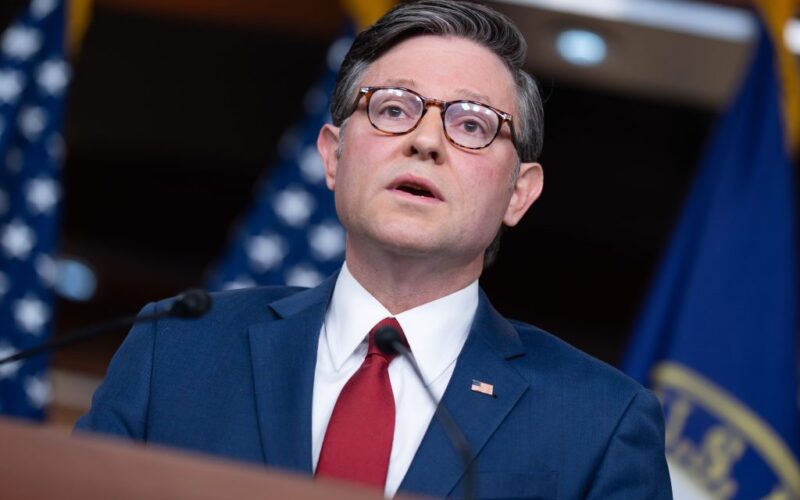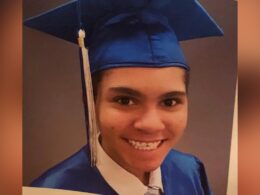The Republican-controlled House of Representatives was set to vote as soon as Wednesday afternoon on a measure to end the government shutdown.
The GOP-led rules committee was expected to meet late Tuesday to tee up consideration of a stopgap government funding bill that was passed by the Senate with crucial support from a handful of Democrats a day earlier.
If passed and signed into law by President Trump, who says he supports it, the measure would reopen the government after the longest shutdown in history dragged on for more than six weeks.
Republicans hold a six-seat majority in the House, meaning House Speaker Mike Johnson can likely only afford to lose the votes of two GOP lawmakers to pass the measure.
Rep. Hakeem Jeffries (D-New York), the Democratic minority leader, vowed Democrats will vote in lockstep against the bill, which does not include Democratic demands to extend tax credits to address skyrocketing Obamacare health insurance premiums.
Two conservative Republicans broke ranks to oppose their party’s original stopgap spending bill while one moderate Democrat supported it. That bill stalled in the Senate, causing the government to shut down on Oct. 1.
The Senate, which requires 60 votes to pass most legislation, passed a new version of the spending bill to fund the government until January after seven Democrats and a Democratic-leaning independent broke ranks with their party’s leadership.
If Congress gives final passage to the bill on Wednesday, Trump could sign it anytime and start the process of reopening the government.
Furloughed federal workers could return to their jobs before the weekend and air traffic controllers and airport security screeners, who have been working without getting paychecks, would get paid within a couple of days.
Transportation Secretary Sean Duffy warned it might be a couple of days before the air travel system returns to normal after several days of increasing flight delays and cancellations.
Low-income recipients of SNAP food assistance should also receive the benefits that not all of them received since Nov. 1 when the Trump administration decided not to pay them with a contingency fund set aside for such an emergency.
The Supreme Court was expected to rule later Tuesday on the Trump administration’s push to force some Democratic-run states to withhold full SNAP payments. It wasn’t clear if or how the apparent resolution of the shutdown might impact that ruling.








